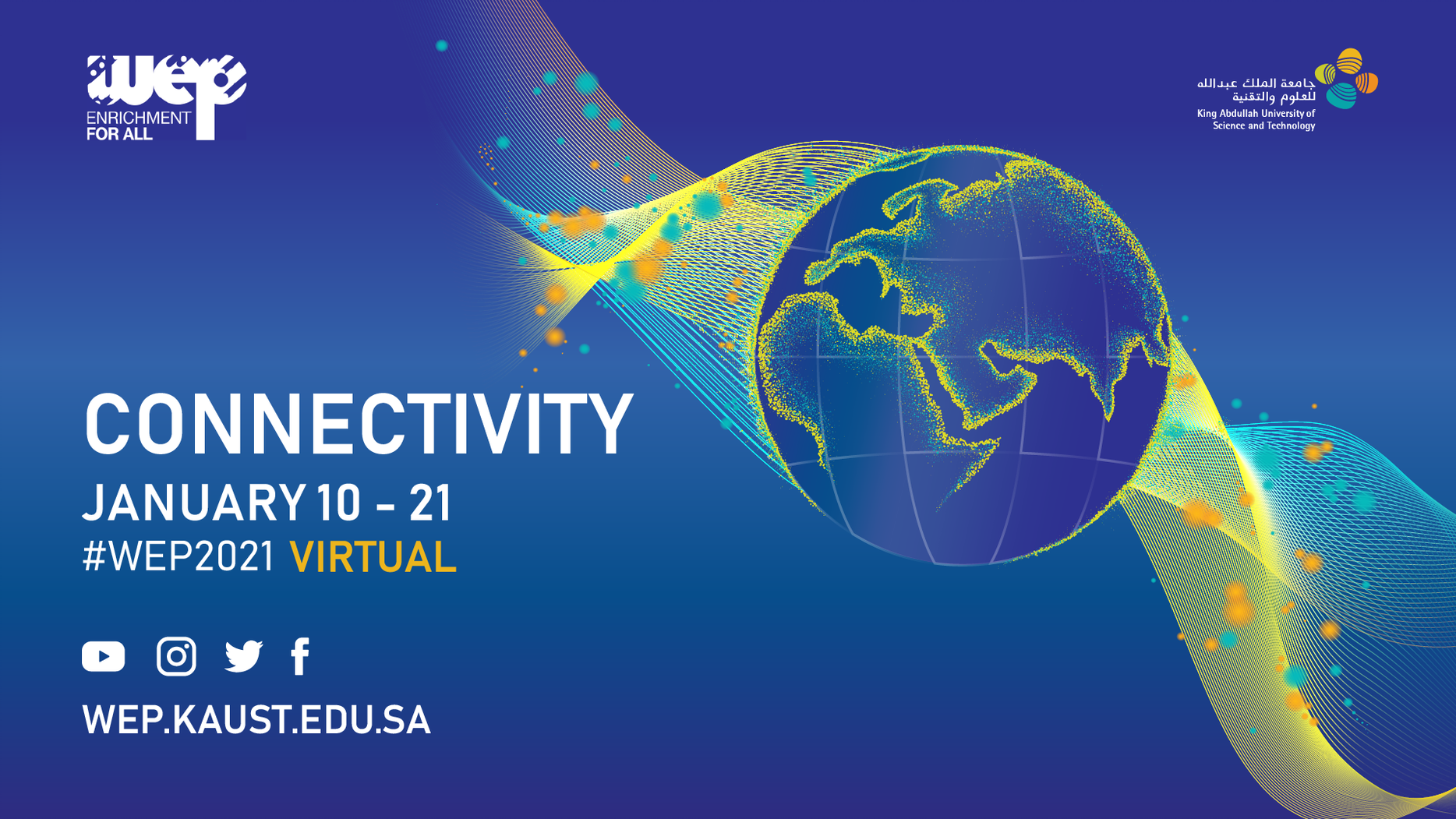WEP 2021: Connectivity as a universal language


Connectivity is a word that underscores the kind of world we live in today. Without access to technologies that enable us to connect with each other, surviving a year of physical distancing due to COVID-19 health prevention measures would have been extremely difficult.
The theme of the KAUST Winter Enrichment Program (WEP 2021), taking place January 10-21, is "connectivity" in every shape and form. More than 60 speakers will participate. Even though the theme was picked before the wake of the global pandemic, discussing connectivity could not be more timely.
WEP 2021 Chair Khaled Nabil Salama, a KAUST professor of electrical and computer engineering, finds connectivity to be important and relevant to his work with engineers in building a network infrastructure for connecting people through the Internet.
"This is where it all started. It sounded like an interesting concept that many of us are working on through our research," Salama said. "But connectivity has other aspects beyond our research. For example, personal relationships are all about connections, as we are all connected to each other in one way or another. Humans are social animals. We created language from day one. Connectivity touches every aspect of our lives. You can think of connectivity in so many different ways."
WEP will discuss how connectivity has changed and grown exponentially through the decades. Some examples: Native Americans in North America and also Chinese soldiers stationed along the Great Wall of China used smoke signals to send basic messages over long distances. Boy scouts in the U.S.A. today are still taught this basic two-way communication system. Up until the 20th century, people primarily wrote handwritten letters, which often took long times to deliver. Landline telephone calls, mobile phones and SMS messages, social media messaging, then video calls have successively made it easier and cheaper to connect. Internet transmission has evolved from dial-up to fiber optic technology.
The program will also touch upon the dark side of connectivity, such as cybersecurity threats and the psychological danger of cyber bullying.
"As human beings, we always want to push the limits of communications," Salama said, adding: "We wouldn't have been able to work from home during the pandemic were it not for the ability to be connected. Connectivity changes our behavior and culture. We are contributing to saving the environment by traveling less and connecting more online; it is more cost and time effective. Yet, you still lose some of the social sense of spontaneous networking with people."
WEP 2021 is entirely virtual due to COVID-19 restrictions, yet this same circumstance provides an opportunity for more speakers to participate from around the world, and to reach wider audiences through live-stream keynote talks, panel discussions and related online events. Some presentations will be open to students only—those from KAUST and also in-Kingdom universities who would usually attend in person.
"This used to be a big event on campus; now it is virtual, which comes with conveniences as well as challenges, like trying to accommodate speakers from different time zones, East to West," Salama said. "Without connectivity, we would have had to cancel WEP 2021."
A topical perspective of connectivity is how highly contagious infectious diseases like COVID-19 are transmitted due to human connections and travel.
"When we track down the problem, it takes us to connectivity. People catch the virus when they are connected to each other," Salama said.
In that regard, Professor Gabriel Leung, dean of the Li Ka Shing Faculty of Medicine at the University of Hong Kong, and former undersecretary of health in Hong Kong who worked on the spread of SARS in Asia, will discuss disease transmission, contact tracing methodologies, and travel management during a global pandemic.
Minister of Communications and Information Technology H.E. Eng. Abdullah Al-Sawaha will give a keynote presentation that addresses the latest developments in Internet technology and infrastructure in Saudi Arabia—one of the leading countries in digital activities. Another keynote speaker, Abdulrahman Addas, CEO of the Royal Commission for Makkah City and Holy Sites, will talk about how mobility and transportation connect pilgrims traveling to Mecca and Medina.
Among the exciting events will be having direct access to the European Organization for Nuclear Research, known as CERN, and virtually interacting with scientists, who will explain the physics and technology behind the experiment and answer questions from attendees.
Professor Donald E. Ingber, founding director at Wyss Institute for Biologically Inspired Engineering at Harvard University, will talk about breaking the boundaries between art and science in his session, "Advancing science and technology innovation by crossing the art-science-design interface."
Moreover, a virtual panel discussion will bring together environmental and material scientists from KAUST, ETH Zurich and artists from Saudi Arabia and Switzerland to discuss the potential of connecting heterogeneous knowledge from the arts, science and technology.
Cultural events will include a film festival screening of documentaries on the topic of connectivity.
The logo of WEP 2021—a glowing globe—was designed by a student at Umm Al-Qura University. Elham Mulla was selected the winner of the WEP Poster Design Contest from among a group of talented students at KAUST and other universities in the Kingdom for designing a poster that best demonstrated the theme of connectivity.
For more information, please visit enrichment.kaust.edu.sa
Related stories:
- WEP 2020: A futuristic approach to medicine
- Innovation for the future
-
KAUST presents 'TIME'-themed festival of science

